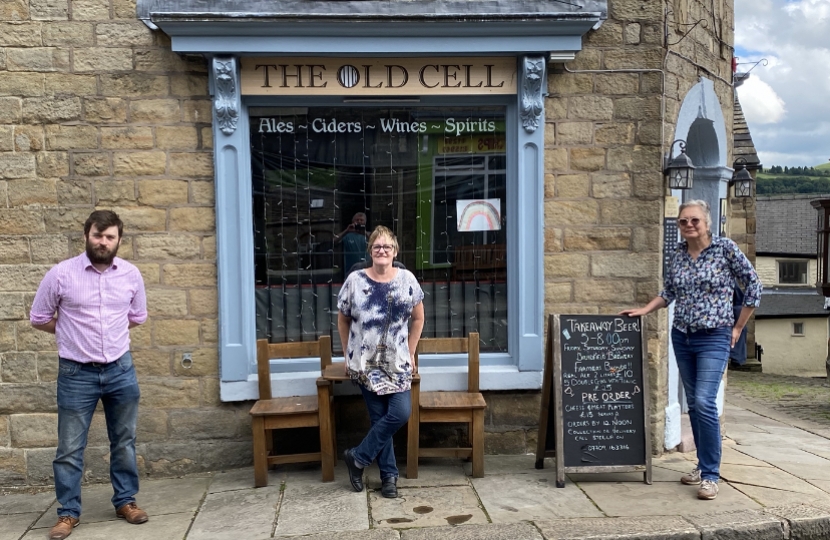
MP for the High Peak, Robert Largan, and owner of the Old Cell Ale Bar, Stella Walters, who has run a micropub in Chapel-en-le-Frith for four years, have criticised High Peak Borough Council’s decision to refuse a pavement license application.
In July, the Government implemented emergency legislation—the Business and Planning Act 2020—that included a range of measures which aim to help businesses adjust to new ways of working as the country recovers from the disruption caused by Covid-19.
In July, following the legislative changes, Stella applied for a pavement license to increase capacity in her pub. In line with Covid-secure guidelines, this would allow additional seating on the pavement and cobbled area at front and side of the venue.
Whilst the application received nine objections from members of the public, it also received nineteen representations of support.
In August, High Peak Borough Council refused Stella’s application, despite approving applications for many other High Peak businesses implementing the same changes Stella applied for.
Stella Walters commented:
“The Government introduced new laws to the pavement licence in July to allow every pub, bar, and restaurant to serve alcohol for people to drink on the street. Struggling small businesses were told we'd be able to expand our drinking areas into car parks, pavements, and roads to make safe space for our customers.
“Sadly, the bureaucrats at Buxton Town Hall seem to spend their time finding reasons why this can't happen.”
Robert Largan MP commented:
“Throughout the crisis, I’ve been working hard to help local businesses. One of the steps taken by the Government to help bars and pubs to reopen safely is to make it easier to apply for outside seating.
“I’m frustrated that some businesses are finding it very difficult to apply successfully to High Peak Council, and I’m doing what I can to help them. I want to see popular local businesses like The Old Cell Ale Bar in Chapel-en-le-Frith be able to open in a way that’s safe and commercially viable, protecting jobs, traditional produce, community social space and the supply chain.”




